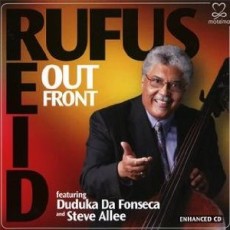
Daily Dose Of Jazz…
Rufus Reid was born on February 10, 1944 in Atlanta, Georgia but was raised in Sacramento, California where he played the trumpet through junior high and high school. Shortly after graduation he entered the Air Force and it was there that he became seriously interested in the bass.
Following his honorable discharge from the military, Reid moved to Seattle to begin studies with James Harnett of the symphony. Then continued at Northwestern University graduating with a music degree as a performance major on double bass.
His professional career began in Chicago playing with Sonny Stitt, James Moody, Milt Jackson, Curtis Fuller and Dizzy Gillespie, recording with Kenny Dorham, Dexter Gordon, Lee Konitz and Howard McGhee, and touring internationally with the Hutcherson-Land quintet, Freddie Hubbard, Nancy Wilson, Eddie Harris and Dexter Gordon in the ‘70s. Moving to New York in 1976 he began playing and recording with Thad Jones & Mel Lewis who are just the few colleagues among the hundreds of world’s greatest musicians.
A prolific bassist, Reid has spanned generations of jazz appearing on countless hard bop, bebop, swing and pop sessions with his restrained yet emphatic tone, time, harmonic sensibility and has made him one of the most sought after bassists in the industry. He has co-led a group with Akira Tana called TanaReid since the late eighties.
Rufus Reid began teaching at William Patterson College in 1979 and the bassist, educator and composer continues to record and perform around the world.
More Posts: bass
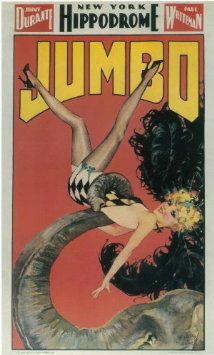
From Broadway To 52nd Street
The Richard Rodgers and Lorenz Hart music written for Jumbo was first heard on November 16, 1935 on the stage of the Hippodrome. Rodgers and Hart wrote three timeless classics that became jazz standards: My Romance, Little Girl Blue and The Most Beautiful Girl In The World. The musical ran for 233 performances and starred Jimmy Durante, Donald Novis, Gloria Grafton and a number of circus specialty acts.
The Story: It’s a Circus tale about two feuding circus magnates, Mulligan & Considine, who are dismayed to learn their children have fallen in love. Considine’s problems compound by his drinking and imminent bankruptcy. His money difficulties are solved when his agent burns down his house allowing him to collect his insurance. When the kids reconcile the fathers, Considine puts the bottle on the shelf.
Jazz History: Jazz standards are musical compositions that are widely known, performed and recorded by jazz artists as part of the genre’s musical repertoire. This list includes compositions written in the 1930s that are considered standards by at least one major fake book publication or reference work. Some of the tunes like Summertime, All The things You Are, My Funny Valentine and Body and Soul were already well known standards by the 1940s, while others were popularized later.
Sponsored By
www.whatissuitetabu.com
More Posts: broadway
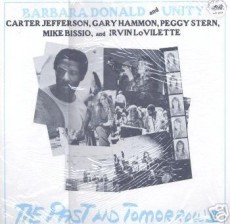
Daily Dose Of Jazz…
Barbara Donald was born February 9, 1942 in Minneapolis, Minnesota. At 9 she was playing the cornet, listening to Dixieland, Louis Armstrong and Benny Goodman and showed physical abilities unusual for a woman. She soon switched to the trumpet, receiving a good musical education on various reed instruments and vocals.
In 1955 her parents moved to California where she was denied access to the high school big band, so she formed her own groups. By age 19, she was sharing bandstands with Dexter Gordon, Stanley Cowell and Bert Wilson, a daringly unusual position for a white woman. Ironically, she faced the same denial with jazz big bands refusing to audition women. Therefore she paid her dues to rhythm & blues, rock and roll and dance bands.
A brief stay in New York City strengthened her determination and upon her return to Los Angeles, Barbara started hanging out with jazz musicians and studying the art of playing bebop with “Little” Benny Harris, who co-wrote “Ornithology” with Charlie Parker. Settling in San Diego in 1964 she met mentor Sonny Simmons and taught her structure with hard keys and hard chords. Simmons’ own innovation stressed playing the melody and staying on top of the beat.
From 1964 to 1972, Barbara and Sonny lived, performed and struggled together. Their career, if too often chaotic with irregular engagements and recordings, remained underground, producing brilliant and singular music. However, Barbara’s presence balanced her husband’s revolutionary moods at a time when Sonny was prone to radical sojourns between tradition and modernity.
Her voluble and powerful, somehowunadorned playing, indicating a perfect control of the bop idiom, characteristic of the immediate post-Trane free expression, was the perfect supporting structure of Simmons’ angular themes and improvisations.
Barbara Donald parted from Sonny, moved to Washington in the early 80’s, formed Unity and began to expose and refine her own concept. In 1984, Barbara presented Unity at the Kool Jazz Festival with then rising star Charnett Moffett on bass. By 1992, Barbara Donald’s health was failing and one of the top female jazz trumpeters, after experiencing a series of strokes that rendered her unable to actively play live, Donald had been living in an assisted care facility in Olympia, Washington, from 1998 until her death on March 23, 2013.
More Posts: trumpet
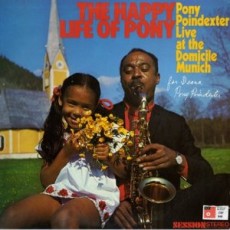
Daily Dose Of Jazz…
Saxophonist Pony Poindexter was born Norwood Poindexter on February 8, 1926 in New Orleans, LA. Poindexter began on clarinet and switched to playing alto and tenor sax growing up. In 1940 he studied under Sidney Desvigne followed by his move to Oakland to attend Candell Conservatory.
From 1947 to 1950 he played with Billy Eckstine, 1950 he played in a quartet with Vernon Alley, from 1951 to 1952 he was with Lionel Hampton and in 1952 he played with Stan Kenton. Neal Hefti wrote the tune “Little Pony”, named after Poindexter, for the Count Basie Orchestra.
Through the end of the 1950s Poindexter played extensively both as a leader and as a sideman, recording with Charlie Parker, Nat King Cole, T-Bone Walker and Jimmy Witherspoon. In the early sixties he backed up Lambert, Hendricks & Ross, who together also recorded a vocal version of “Little Pony”.
He was one of the first bebop saxophonists to begin playing soprano saxophone in the early 60’s, recording with Eric Dolphy and Dexter Gordon before moving to Paris in ’63 and recording with Annie Ross, Phil Woods, Lee Konitz and Leo Wright. He lived in Spain and Germany before returning to the states in ’77, residing in San Francisco to record again.
Pony Poindexter published his autobiography, Pony Express in 1985 but he had already slipped away into obscurity and never gained the recognition he deserved by the time of his passing on April 14, 1988 in Oakland.
More Posts: saxophone
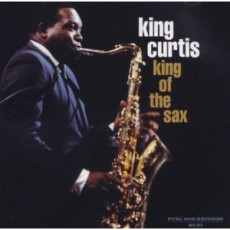
Daily Dose Of Jazz…
Born Curtis Ousley on February 7, 1934 in Fort Worth, Texas he was known to the jazz world as King Curtis. He learned to play the saxophone and as a youth he played in the same high school band as Ornette Coleman. He led his own group while in school and by 19 was touring with Lionel Hampton before settling in New York. Once there he led a trio containing Horace Silver.
Becoming involved in session work in the mid-50’s Curtis’ prominence rose, playing behind the Coasters and others, then replaced Red Prysock in the Alan Freed radio show band. Regular live appearances at Small’s Paradise and the Apollo Theatre between the late 50’s and early 60’s led him to become musical and studio director for Aretha Franklin and others. During this period he recorded a number of singles for Atco, Prestige and Capitol and Atlantic record labels cranking out hits like Soul Serenade, Memphis Soul Stew and Ode To Billy Joe.
Curtis played tenor, alto and soprano saxophones and was the last of the great R&B tenor sax giants. He was known for his distinctive riffs and solos and loved playing jazz, funk, and rhythm and blues, but chose to make his living playing rock and roll.
All aspects of his career were in full swing at the time he became embroiled in an argument with two men outside his 86th Street apartment in New York City. One of the men stabbed him in the heart and after being rushed to Roosevelt Hospital, King Curtis died from his wound on August 13, 1971. He was 37 years old. On the day of his funeral, Atlantic Records closed its offices.
More Posts: saxophone






